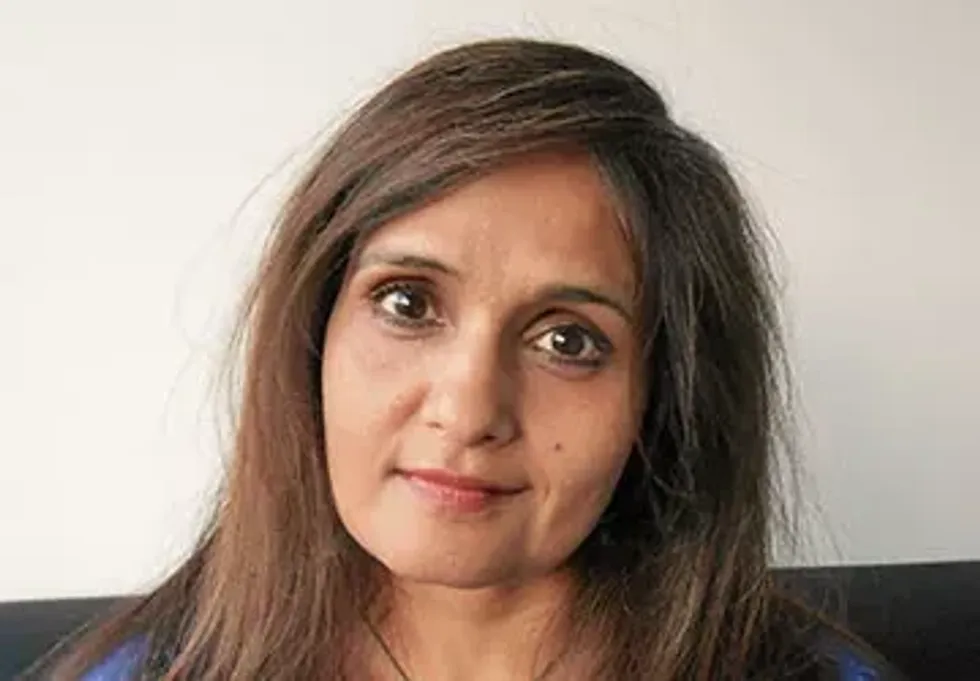Britain’s largest psychological organisation has come under fire for teaching that “whiteness upholds racism” in its training programmes.
The British Psychological Society (BPS) is facing criticism from a new splinter group of mental health professionals who accuse the organisation of promoting “woke ideologies” in its educational approach.
Just Therapy, comprising approximately 50 mental health practitioners, has emerged to challenge the BPS’s stance on race-related education.
The controversy centres on psychology courses at the University of East London (UEL), partly funded by the BPS, which include modules such as “introduction to whiteness” and “talking whiteness”.

Prof Patel’s presentations assert that “whiteness is invisible”
University of East London Website
The training materials, recently revealed, show students being taught about the “systematic and disproportionate predominance” of white clinical psychology trainees.
In training presentations seen by The Telegraph, Professor Nimisha Patel instructs students to scrutinise their “theories, methods and practices and training institutions and curricula, for Whiteness and its deleterious consequences for the public”.
The materials explicitly state that “white voices need to be careful not to control discussion spaces”, emphasising that white dominance is best addressed through “a listening and learning attitude”.
Prof Patel’s presentations assert that “whiteness is invisible” and “whiteness upholds racism”.
Students are encouraged to “disrupt whiteness” by adopting “anti-racism as a stance”.
The training materials also critique commonly used terminology, with Prof Patel arguing that terms like Bame (Black and Minority Ethnic) should be avoided because they “centre whiteness”.
The BPS’s stance is further evidenced in its recent publications promoting an “anti-whiteness model”.
A 2023 article in the BPS Clinical Psychology Forum, titled “Anti-Racist Action in Clinical Psychology”, warns members that “despite strides made in the last three decades, the pervasive impact of racialised power endures”.
Another publication, “The Trojan Horses of Whiteness”, claims that “Whiteness is everywhere in our teaching content… even when we teach about diversity”.
The organisation’s Standards for Accreditation of Doctoral Programmes explicitly states their aim to “produce a decolonised curriculum”.
BPS Chief Executive Sarb Bajwa has previously addressed these concerns directly, stating: “Are we institutionally racist? I think my answer would be that, if it feels like we are, then we probably are.”
James Esses, founder of Just Therapy, has strongly condemned the BPS’s approach, accusing them of being “the biggest racists going”.
“The BPS and other similar organisations have signed up to an ‘anti-racist’ agenda. The twisted irony is that, in adopting an ‘anti-whiteness’ stance, they are demonstrating themselves to be the biggest racists going,” Esses told The Telegraph.

James Esses has strongly condemned the BPS’s approach
The 32-year-old former barrister argues that “identity politics have no place in the field of mental healthcare”.
Esses, who recently received a settlement and “full apology” after being wrongly expelled from a masters course at the Metanoia Institute for his gender-critical views, has also criticised the BPS’s stance on transgender healthcare.
He specifically highlighted the organisation’s failure to support Dr Hilary Cass’s independent review of children’s gender dysphoria treatment.
In response to the criticism, a BPS spokesman defended the organisation’s approach to diversity in clinical psychology training.
“The need to broaden the diversity of the clinical psychology workforce is a well-known and accepted fact,” the spokesman said.
They emphasised that all stakeholders, including higher education institutions, professional bodies, regulators, and the NHS, are working together to increase access for under-represented communities.
The spokesman stressed that clinical psychology is undergoing “rapid and sustained change” and requires training from “the broadest possible spectrum of backgrounds and viewpoints”.
The University of East London also responded to the controversy, with a spokesman stating: “The University of East London is committed to an inclusive, equitable environment where we create a sense of belonging and where success is made possible for all.”